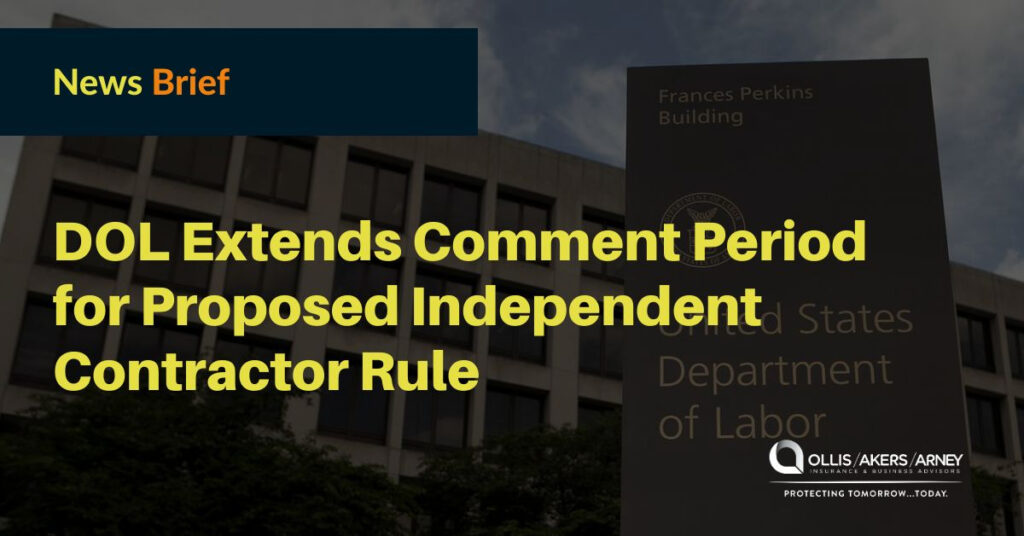On Oct. 26, 2022, the U.S Department of Labor (DOL) announced it would extend the comment period for its proposed independent contractor rule after pressure from business groups and lawmakers regarding the original timeline. Originally, the DOL provided 45 days for public comment. Stakeholders will now have until Dec. 13, 2022, to comment.
Business groups requested more time to engage with organizations and solicit input on how the proposed rule would impact their operations. For example, the National Association of Home Builders criticized the department for severely underestimating the time employers would need to review the proposed rule and analyze the rule’s financial impact on their organizations.
The 184-page proposed rule addresses complex issues and will likely have far-reaching economic consequences for stakeholders. The extension will give stakeholders an opportunity to provide the DOL with a thorough analysis. In its announcement, the department stated that it “takes seriously its obligation to consider any ‘written data, views, or arguments’ submitted by commenters and looks forward to reviewing all feedback” received before the close of the comment period. Last year, the department lost a legal challenge to another proposed independent contractor rule for failing to provide enough time to seek public comment.
The Proposed Independent Contractor Rule
The DOL’s proposed rule would implement a test the department will use to determine whether workers are employees or independent contractors under the Fair Labor Standards Act (FLSA). The proposed rule would return the test to a multifactor totality-of-the-circumstances analysis to answer the ultimate question of whether a worker is an employee. When determining a worker’s status, the proposed rule would weigh the test’s factors equally, and workers determined to be economically dependent on an employer would most likely be considered employees.
This rule change would likely increase the number of workers who would be considered employees under FLSA. Employees are entitled to certain benefits and protections that employers are not required to provide independent contractors, such as minimum wage, overtime, workers’ compensation and unemployment benefits. This may significantly impact gig companies and related service providers, which classify the majority of their workers as independent contractors.
What’s Next?
The public has until Dec. 13, 2022, to comment on the DOL’s proposed rule. Subsequently, the department will review comments and determine whether to move forward with a final rule.
Even after the DOL completes the notice and comment period, it would likely be some time before this proposed rule becomes final, as the department’s rule is likely to be challenged—similar to the administration’s prior efforts. Employers are not obligated to change how they classify employees until the DOL’s proposed rule becomes final. However, employers who may be impacted will want to follow the DOL’s rule-making process closely. Employers should stay tuned for updates from Ollis/Akers/Arney Insurance & Business Advisors but otherwise operate as usual. We will keep you apprised of any notable changes.
The content of this News Brief is of general interest and is not intended to apply to specific circumstances. It should not be regarded as legal advice and not be relied upon as such. In relation to any particular problem which they may have, readers are advised to seek specific advice. © 2022 Zywave, Inc. All rights reserved.


